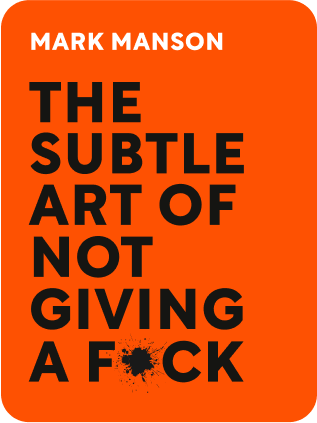

This article is an excerpt from the Shortform book guide to "The Subtle Art of Not Giving a F*ck" by Mark Manson. Shortform has the world's best summaries and analyses of books you should be reading.
Like this article? Sign up for a free trial here .
Is it really true that anything that doesn’t kill you will make you stronger? Why will running from pain prevent you from growing?
Studies show that war and cancer survivors are more grounded and able to cope with struggle after overcoming pain and adversity. While these examples are extreme, it’s also true that experiencing some sort of pain, whether physical or emotional, strengthens you as a person.
Keep reading to learn how pain makes you stronger.
Pain Spurs Positive Change
We need pain and suffering, including the pain of struggle and failure, in our lives in order to grow.
Pain makes you stronger and shows you where you need to make changes. Pain also makes us more compassionate, less entitled, and more appreciative of the positives in life.
For instance, a group of Polish WW II survivors, who had traumatic experiences including surviving bombings and the Holocaust, ended up believing their experiences had made them better people. Their wartime experiences made them look at life differently. They weren’t bothered by daily frustrations and inconveniences. They were more confident and comfortable about their role in life. Although they still suffered from the effects, they also used their traumatic experiences to improve themselves and their lives.
Similarly, survivors of cancer and military personnel who have experienced war zones often say they feel stronger, more able to cope, and more grounded after facing and surviving adversity. It can take a crisis to make us rethink our lives and make changes.
Don’t Hide From Pain
On the other hand, trying to avoid pain prevents us from reaching our potential. Like physical workouts, it makes us stronger. Just pursuing superficial gratification and highs won’t force you to change. Pain is a beginning.
When people feel sad or anxious, they usually want to get back to “normal” (feeling good) again as soon as possible. But you shouldn’t be so quick to try to jettison pain. You should go with the experience.
When you intentionally change your values, you add an element of pain. You should expect pain when you act on a new value. Accept it as part of change.

———End of Preview———
Like what you just read? Read the rest of the world's best book summary and analysis of Mark Manson's "The Subtle Art of Not Giving a F*ck" at Shortform .
Here's what you'll find in our full The Subtle Art of Not Giving a F*ck summary :
- How to clarify what's important to you (and not just what you think should be important)
- Why it's okay for things to not always go well in life
- Why you need to care about fewer things






